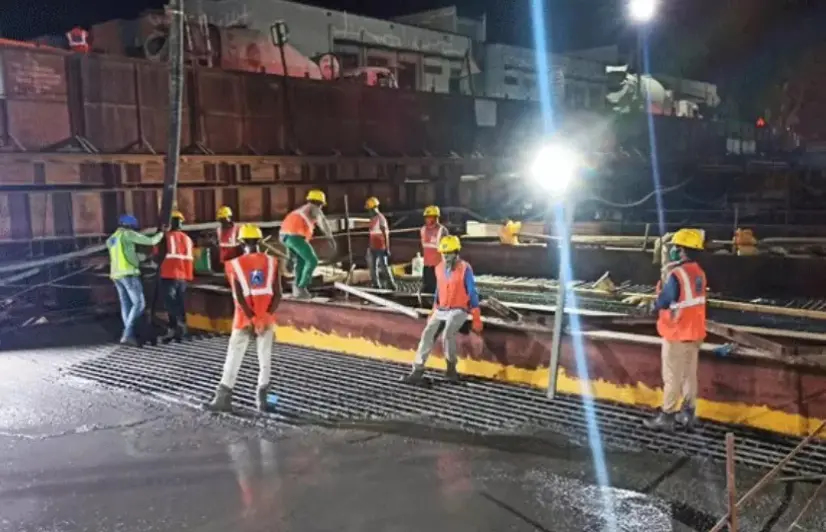Maha' industrial zones stress on hiring locals, offer higher pay, perks

Maha' industrial zones stress on hiring locals, offer higher pay, perks
Pune, Maharashtra: The reverse migration set off by the lockdown to contain the spread of COVID-19 pandemic has impacted industries in Pune, Maharashtra. Eager to start operations, industries are now paying higher wages to locals.
On June 5, the Maharashtra government told the Supreme Court that they have sent 11 lakh migrant workers to their respective states. On the same day, the state government told the Bombay high court that it spent Rs 330 crore in the process.
The void left by the exodus of migrant workers, mostly from states such as Uttar Pradesh, Bihar, Jharkhand, Rajasthan and West Bengal, has affected the construction sector and heavy industries, where most of the labourers were employed.
Several projects in Pune have been put on hold owing to the lockdown and migration of labourers, according to the Confederation of Real Estate Developers Association of India (CREDAI). Suhas Merchant, the President of CREDAI, Pune chapter, told 101Reporters that over 5,000 construction projects in Pune, Pimpri-Chinchwad and Pune Metropolitan Region Development Authority (PMRDA) have been stalled and prolonged as most of the hired labourers have returned to their respective states.
To address the vacancies, they are planning to hire 1,200-1,500 locals and train them free of cost, he added.
High wages
The labourers who would earlier earn between Rs 12,000-14,000 a month are getting paid close to Rs 20,000 now. Apart from that, the new recruits also have other incentives and free canteen facilities.
Owing to the reverse migration, the Metro work at Pune and Mumbai was also affected.
New recruit at Pune metro, credit: Supriya Dedgaonkar
Hemant Sonawane, the corporate communications head of MahaMetro, told 101Reporters that in Pune, there were 2,800 labourers employed out of which only 1,600 have stayed. He estimated that the labour shortage would cause an additional delay of six months.
He added that they have given instructions to labour contractors to hire locals and bring them on board by paying extra money as the work needs to be completed soon.
Ganesh Dherange, a contractor who hires labourers for work at Chakan and Ranjangaon Maharashtra Industrial Development Corporation (MIDC) site, stated that the rate of wages was hiked by 25% from May. He added that now labourers demand daily payment, while it was on a monthly basis earlier.
Madhav Jagtap has started working in Ranjangaon MIDC from May 15. He stated that he used to earn Rs 6,000 less even though he used to work at an automobile company in the same locality. He said he earns about Rs 20,000 now and even has free meal facilities.
Shailesh Pote, who joined Carraro India Private Limited on May 17, an automotive parts company, as a labourer in Ranjangaon, Junnar Taluka, stated that earlier, contractors would prefer to recruit labourers who belonged to other states as they would work without taking leaves and were content with less pay.
Now, he has received a 100% wage hike when compared to his earlier wage and also has other incentives and free meal facilities as well.
Amit Zende, a Talegaon-based contractor (Pune district) who recruits labourers in Chakan, Navi Mumbai and Pimpri Chinchwad area, stated that though word-of-mouth publicity, he has been able to recruit over 300 local labourers for companies such as Tata and Mahindra.
Kurkumbh MIDC, a town located near Solapur Highway, is home to more than 50 industries. The contractors are facing a tough time and are on a lookout for replacements. They are ready to pay extra to the ones who stick around.
Satish Shitole, the talathi (village accountant) of Kurkumbh MIDC, stated that as people left during the lockdown, the industries started hiring people from the nearby areas. “We have now recruited people living in the nearby villages and have given them the opportunity to get onboard; this time with better pay and incentive,” he added.
He mentioned that there has been a 50% wage hike in the area.
Will affect consumers
More than three lakh labourers, about 70% of the total labourer workforce, working in and around Pune have left during the lockdown, mentioned deputy labour commissioner Vikas Panvelkar.
Dilip Batwal, the secretary of Federation of Chakan Industries, mentioned that as thousands of migrants returned to their homes, contractors were in a fix.
Then, they came up with a solution that the youth in nearby villages be trained and given jobs. “They are not only being trained but considering the need of the hour to get the work done, they are also being paid higher than what the previous migrants would be paid,” he added.
Ravindra Shisve, the joint police commissioner, Pune, stated that he had tried to stop labourers from leaving, but people didn’t listen to him as their means of livelihood was hit.
Shive told 101Reporters, “There were a couple of times when I went to the bus stops and requested the migrant labourers to stay and that their food and shelter would be taken care of. My motive was to prevent them from going was to cut down the risk of getting infected while travelling.”
Sam Nair, a heavy industries expert working for Stewart & Mackertich Wealth Management Limited, stated that the reverse migration of the labourers has affected the heavy industries and the pace of production has slowed down.
“In a country like ours, the input from labourers is extremely important and in return affects the product. The dip in the number of workers and their increased salaries is going to eventually affect the consumer and this effect will last for the two-three quarters and the commodity of prices will increase. This, however, is expected to be a short-time effect and will bounce back when the labourers return,” he commented.
Would you like to Support us
101 Stories Around The Web
Explore All NewsAbout the Reporter
Write For 101Reporters
Would you like to Support us
Follow Us On

